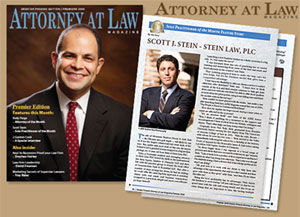Walk the Walk:
Strategically Defaulting Commercial Property Loans
Last week, the Wall Street Journal reported that some of the country’s largest commercial real estate companies, including Macerich Co., Vornado Realty Trust and Simon Property Group Inc. have intentionally stopped making payments on certain of their mortgage financing. These “strategic defaults” signal a readiness by cash rich borrowers to walk away from properties on which the debt exceeds the current value of the asset. Such defaults pressure lenders to either negotiate with borrowers to restructure their debts or to take back the properties and suffer massive write-downs.
There is an obvious gap between what commercial properties are currently worth and the amount of the loans encumbering the assets. Some estimate that there is $1.4 trillion of commercial-real-estate debt coming due by the end of 2014 and more than half of it is on underwater properties.
When lenders are either unable or unwilling to restructure property debt, often times, the best business decision may be to give the property back. Sometimes, it may make sense to walk even if lenders are willing to restructure the debt. However, each property and loan must be evaluated on a case by case basis with a full understanding of all of the borrower’s legal obligations and potential exposure.
As part of any analysis to walk from a commercial loan, property owners should consider:
- Recourse liability. The existence (if any) and terms of personal or corporate guaranties. Although many commercial mortgages are “nonrecourse” loans, complex lending transactions are rarely that simple and often times even nonrecourse loans have carve-outs and exceptions that may result in liability for borrowers or their principals.
- Potential Restructuring. Would it make sense to continue to own the property even if your lender modified or extended the loan terms? In some cases, properties continue to provide considerable cash flow despite a decline in “value” and careful consideration must be given to the amount of current and potential cash flow for an asset. What terms would need to be changed in order to make sense to keep the property.
- Investor Obligations. Do you have investors or an ownership structure that would expose you to liability from shareholders if you were to forfeit the property? Or if you failed to forfeit the property, when forfeiture would be the prudent business decision?
- Lender Relationship. Even where loans may not be legally cross-collateralized, if a borrower has multiple loans with the same lender, a strategic default on one loan may cause extensive damage to a relationship and make it hard to maintain a working relationship on other “performing” loans. Likewise, in market with a limited availability of traditional financing, borrowers must take in account whether they will need to come back to this same lender for future financing. We assist real estate owners in all aspects of their commercial real estate and have successfully assisted and counseled borrows to work with their lenders to modify their commercial loans and mitigate personal and corporate liability.
- For more information please call (480) 889-8948, send an email to [email protected] or visit www.SteinLawPLC.com.
In the News
Scott J. Stein was exclusively featured as the “Sole Practitioner of the Month” in the premier issue of Attorney At Law Magazine, a new magazine being launched for private practice attorneys in Maricopa County.


Scott J. Stein was named among the 2009 Top People To Know In Commercial Real Estate by AZRE (Arizona Commercial Real Estate) Magazine in the Attorney category.
Download Scott J. Stein’s v-card
(Attorney advertising material)
Copyright � 2010 Stein Law, PLC. All rights reserved.

